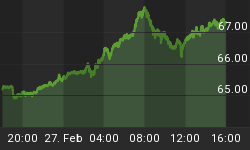
Regular readers of my articles either have some knowledge of Austrian economic theory or at least suspect that Keynesian and monetarist alternatives are flawed. Their failures are becoming more evident, which suggests we will hear more of Austrian theory in 2013. So how is Austrian theory different? Consider the following simple propositions in accordance with Austrian theory, which we can confirm from personal experience:
-
Free market prices are always set by consumers through their choice to buy or not to buy and at prices which give them value. It follows that prices of everything in a free market economy obey this rule, otherwise product is simply unsold.
-
No economist can foresee the path of economic progress, which is only revealed by entrepreneurs correctly anticipating what people want.
Mainstream economists are confused by the whole subject of prices, concluding that production costs and marginal consumer demand between them set prices. This allows the mathematically-minded to draw supply and demand curves. They then contradict themselves by saying that falling prices discourage demand, because consumers will delay their purchases hoping for lower prices. And they fail completely to accommodate in their calculations the consumer who simply decides not to buy something at any price.
On the second proposition, since no economist can foresee progress, they substitute for it growth. Growth is simply more money in the economy, usually contrived out of thin air by central and commercial banks. It is perfectly possible, indeed more than likely, for an economy to "grow" while regressing, when for example the state decides to take money from productive citizens and spend it less productively.
Intellectual ignorance of both price theory and what constitutes economic progress leads mainstream economists into believing that their science can be dehumanised. They resort to statistical analysis, appropriate only to physical as opposed to natural science. They assume that yesterday's prices, reflecting past supply and demand, can be projected forward to tomorrow, giving economic planners the basis to intervene to produce a better outcome. This assumption has its mere thread of validity by eliminating progress from calculations altogether.
This is behind many inconsistencies, such as how can we all be better off when 10% of the work force is unemployed. And how are we better off with government providing us with many of the necessities of life instead of the market, when our personal experience tells us of costly bureaucracy and levels of service we would not otherwise tolerate?
It is a plain fact that we have allowed ourselves to be deluded into thinking that what we know to be true is not true and that the statistics economists produce as evidence are irrelevant and self-serving. Does anyone with half a brain actually believe the politicians, backed by the cleverest economic advisors the system can produce, when they say they can improve life with someone else's money?
Austrian economic theory tells us the truth about these and other fallacies. The great Austrian economist Ludwig von Mises remarked with full justification that the only correct declaration to come out of the neo-British Cambridge school (Keynesianism and monetarism) was Keynes's statement that in the long run we are all dead.
So I urge anyone who even suspects they are being bamboozled by the state to make the effort to understand the virtues of free markets, sound money and Austrian economics.















